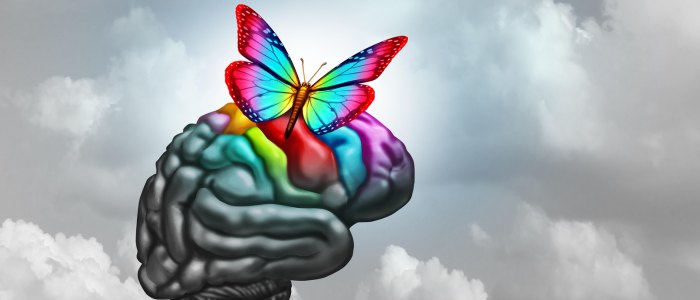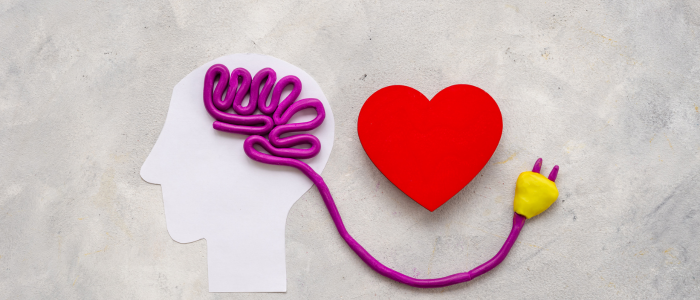(6 min read)
Easter is coming up, with its dual nature as a religious festival and a celebration of spring that has become synonymous with chocolate and Easter eggs.
The holiday carries deep spiritual significance, commemorating the resurrection of Jesus in the Christian faith. But, for the purposes of this article, we’ll focus on the chocolate and add a bit of neuropsychology and cyber security.
Is chocolate good for your brain?

Chocolate isn't just a treat for your taste buds; it might also be a little pick-me-up for your brain. Researchers have taken a keen interest in dark chocolate’s flavanols and their potential benefits on cognitive functions. A 2017 review in Frontiers in Nutrition sheds light on how these compounds, known for their anti-inflammatory and antioxidant properties, might impact our grey matter.
Here's the bite-sized scoop (hè hè): in the short-term, consumption of dark chocolate can boost memory and reaction times shortly after indulgence, as a 2011 study of young adults showed. Another study in 2014 linked long-term intake of a high-flavanol cocoa supplement with improved memory in older adults. While not all studies agree, these findings hint that there could be more to chocolate than just its delicious taste.
 It's not all about the immediate satisfaction, though. Chocolate has a knack for influencing mood over time, thanks to serotonin, sometimes known as the body's natural mood stabiliser. Chocolate contains tryptophan, a building block for serotonin, which is linked to feelings of happiness and calmness.
It's not all about the immediate satisfaction, though. Chocolate has a knack for influencing mood over time, thanks to serotonin, sometimes known as the body's natural mood stabiliser. Chocolate contains tryptophan, a building block for serotonin, which is linked to feelings of happiness and calmness.
Dopamine, the neurotransmitter governing the brain's reward system, also enters the equation when chocolate is consumed. It's partly why you might reach for another square of chocolate: it's rewarding, literally and chemically.
Dark chocolate, specifically with 70% or higher cocoa content, is also a valuable source of phenylethylamine and tyramine, compounds that also boost dopamine. Before you run off and indulge, you could also be healthy and add other foods rich in tyrosine and phenylalanine to your diet, like almonds and salmon, to enhance dopamine production.
Indulge your happy hormones
Now, dopamine isn't the only happy hormone involved here. Endorphins, released during pleasurable activities like eating chocolate or exercising, also promote feelings of wellbeing and pain relief. So the positive mood effects described during, or shortly after, chocolate consumption may be due to endorphins.
 So, the next time you indulge in a piece of chocolate, you're doing more than just giving your taste buds a treat. You're potentially boosting your brain function, influencing your mood, and maybe, just maybe, contributing to your cognitive health in the long run. While science continues to explore the effects of chocolate on our brain and behaviour, it's clear that chocolate is a player in the complex game of neurotransmitters and mood regulation.
So, the next time you indulge in a piece of chocolate, you're doing more than just giving your taste buds a treat. You're potentially boosting your brain function, influencing your mood, and maybe, just maybe, contributing to your cognitive health in the long run. While science continues to explore the effects of chocolate on our brain and behaviour, it's clear that chocolate is a player in the complex game of neurotransmitters and mood regulation.
How cyber criminals exploit dopamine
What’s the link to cyber security? Dopamine's role in the brain extends beyond the simple pleasure of eating chocolate. It plays a key part in learning, motivation, and notably, curiosity (we wrote a blog about this, see it here).
Research has shown that dopamine neuron activity increases not just with the anticipation of a reward, but also with the acquisition of new information. This type of reward-related cognition is essential to our understanding of how the brain encourages us to seek out and learn new things, suggesting an intricate dance between dopamine responses and our natural inquisitiveness.
Curiosity, fuelled by dopamine, can sometimes lead us down less savoury paths, especially in the context of the way we interact with our digital devices. The same drive that compels us to explore and discover can also push us to click on an intriguing email, open an unexpected attachment, or follow a mysterious link – actions that can lead to security breaches.

Our brains are wired to find these prospects rewarding, and dopamine reinforces that behaviour, even when the stakes are high and the potential for harm is real. This intersection of curiosity, reward prediction, and cyber psychology is a reminder of how our innate desires can sometimes work against us in our modern, connected world.
So, this Easter, while you’re getting all the benefits from chocolate treats, remember that there are times when it’s good to chase those feelings, and times when it might be a little more dangerous – to you and your organisation.
A note on chocolate as an aphrodisiac
 The phenylethylamine (PEA) found in chocolate (in large concentrations) acts as a stimulant on our central nervous system. PEA is often referred to as the ‘love drug’ as it is instrumental in producing feelings of well-being and contentment – which is why Valentine’s Day is also associated with giving chocolate: falling in love is associated with higher PEA levels, chocolate contains PEA, therefore chocolate can make us fall in love. Unfortunately, chocolate has little effect (although it has more effect on men than women). It is broken down as we eat it, so has little impact as an aphrodisiac. Sorry.
The phenylethylamine (PEA) found in chocolate (in large concentrations) acts as a stimulant on our central nervous system. PEA is often referred to as the ‘love drug’ as it is instrumental in producing feelings of well-being and contentment – which is why Valentine’s Day is also associated with giving chocolate: falling in love is associated with higher PEA levels, chocolate contains PEA, therefore chocolate can make us fall in love. Unfortunately, chocolate has little effect (although it has more effect on men than women). It is broken down as we eat it, so has little impact as an aphrodisiac. Sorry.
Sign up to get our monthly newsletter, packed with hints and tips on how to stay cyber safe.
 Mark Brown is a behavioural science expert with significant experience in inspiring organisational and culture change that lasts. If you’d like to chat about using Psybersafe in your business to help to stay cyber secure, contact Mark today.
Mark Brown is a behavioural science expert with significant experience in inspiring organisational and culture change that lasts. If you’d like to chat about using Psybersafe in your business to help to stay cyber secure, contact Mark today.